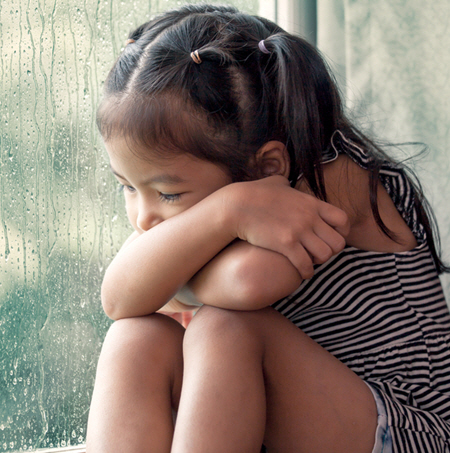“A person’s a person no matter how small.”
– Dr. Seuss
 Tough Stuff
Tough Stuff
Unfortunately, children aren’t immune to life challenges.
Kids must deal with the tough stuff, including illnesses, divorce, bullying, moving homes, changing schools, or losing a loved one. These events may trigger big emotions and/or changes in behaviors. They attempt to adjust through crying, tantrums, school refusal, withdrawing, defiance, lying, or aggression.
Relationships at home and school become strained. The teacher sends notes home about problems in the classroom. Arguments over homework or simple tasks erupt, and worrying about everything becomes common. Sibling rivalry feels like World War III.
Slowly, a complex situation becomes internalized, and your child starts to feel very bad about themselves.
Emotions and Coping
Have you ever noticed how the more you try to push down a need to cry, the more it wants to come to the surface, or how you can only ignore your anger for so long before you find yourself blowing up?
Emotions can be hard to contain for adults – even more so for children.
Kids need to learn that all feelings are ok; what you do with them is the tricky part. Some kids may need to process difficult life events, while others may intensely experience emotions. Other children seem to be natural worriers, constantly scanning for what could go wrong.
Regardless, children cope best when they can identify, communicate, and express feelings in healthy ways.
 Here for you, too, parents!
Here for you, too, parents!
For parents, it can be frustrating when your child gets so worked up over minor inconveniences, or you get angry when he throws a tantrum in the grocery. You aren’t sure how to help, leaving you feeling helpless and concerned about their future.
I work with parents to know how to respond to and support their children when big feelings or difficult behaviors show up. We will look for ways to improve family communication, reduce conflict, and strengthen the parent-child relationship with a team approach.
While I may ask a child to learn coping skills and modify their behaviors, I may ask parents to examine their own emotions or try a different parenting approach. I emphasize rewarding and celebrating each other’s successes and encouraging and supporting one another when challenges persist.
I am all in on efforts to help the family have a strong sense of love and belonging for every member so that everyone can make positive changes safely.
Every child is unique.
Therefore, my approach is to individualize therapy for your child’s needs, developmental level, personality, and interests.
The child guides the pace at which we work and the types of play themes. Therefore, we use any combination of conversation and play to build our relationship as the foundation for therapy.
We will have fun, too, using toys, art, books, games, and role-playing in therapy. They will learn that therapy is their safe place to be themselves, explore feelings, learn how to cope with the tough stuff, and feel better about themselves.
Help your child today. Call me for a free 20-minute phone consultation!

